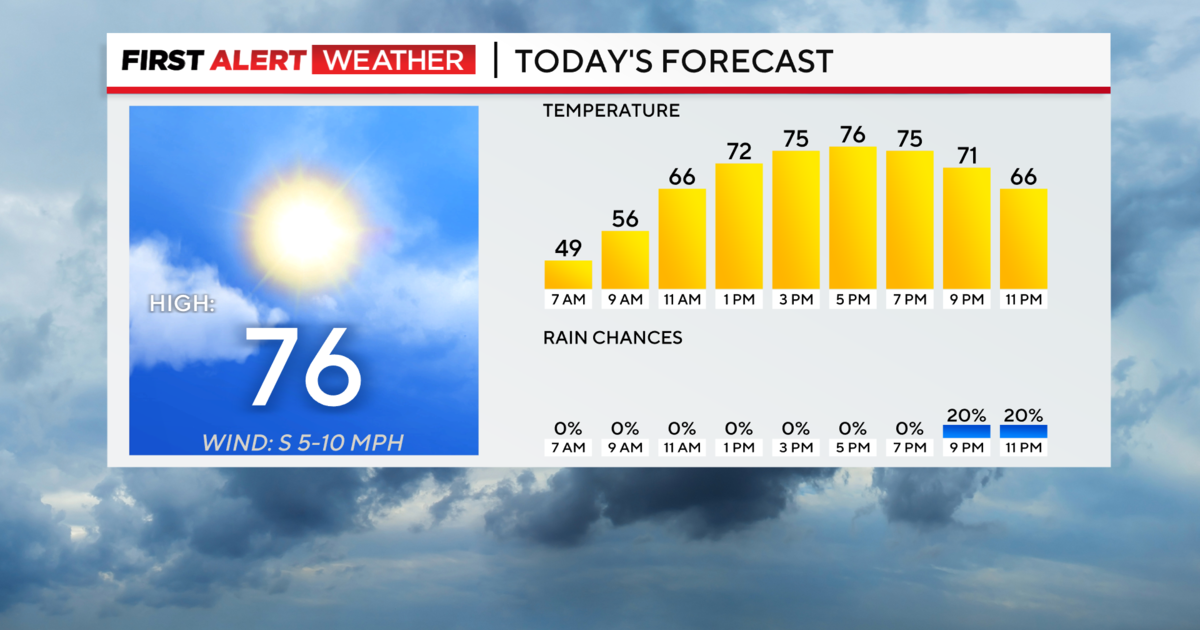Home Solar Energy: Cost Vs. Savings And Is It Worth It?
PITTSBURGH (KDKA) – As energy costs collide with inflation, those budgeting are looking everywhere to save.
Solar energy for the home has been around for some time, but costs keep coming down and potential savings keep going up.
With the sun not going anywhere and just in the sky for free use, there's a certain element of economic logic in solar power.
"It's the first thing we do when we get up in the morning, is look outside and say, 'sunny!'" Said Rachel Rumbaugh, who went solar in 2019 with her husband Greg.
In talking with them, I observed an arrow in their home and it was the beginning of the conversation about how their solar power works.
"[It means] we're generating more power than we're using," Greg said. "It's going back into the grid."
So does that mean they're giving power back to Duquesne Light?
Greg said it does and that means Duquesne Light is paying them for that extra energy.
The bills still come but it often comes with a zero-balance due.
"We've had them for about two years and our electric bill for those two years, it has been about $200/year," he explained.
Of course, there's the question of how much does it cost to install solar panels?
Greg said it was about $22,000 but there's a tax incentive that helped.
"We got about 30-percent of that back," he said.
That happened in 2019, it's down to 26-percent this year and 22-percent next year.
While it may not offset the cost completely, the panels are covering the home's electrical needs and Greg estimates it will take them about eight years to break even.
The panels don't provide any power at night or when it gets cloudy but the power they generate the rest of the time covers the costs of the times they are using strictly Duquesne Light power.
WATCH: Practical Considerations For Solar Power
Now, what are some of the other practical considerations for solar power?
If you're one of those people who follow other members of your home around turning lights off behind them, what if you didn't need to worry about every watt of power you're using because you are only paying the electric company about $200/year?
That's a number that's hard to ignore, but as we said earlier, that's about what the Rumbaugh's pay Duquesne Light each year thanks to solar panels on their roof.
Greg said his home needs about 15 kilowatts each day and the front of his roof is full.
"During the winter, you might get 20-kilowatt hours per day of production, ok, on a really good day, over the summer – well, even yesterday, we got 40," he said.
In fact, on a sunny day, the Rumbaughs could power their home and charge their electric car.
"In full sun, you're generating lots of power and you're not using much, so you're sending a lot back," he continued.
Sending it back down the line that is to Duquesne Light, which pays the Rumbaughs for their power.
Rachel said that also goes beyond just saying money.
"We're going to be here for the rest of our lives and we want to make sure that the world is too," she said.
There's also a practical side to solar energy – when there's no sun, they're relying on the grid.
So, at night or when a big cloud cover passes, or it's cloudy all day long, the power from the roof dips, and appliances don't take kindly to power dips and surges.
That means they also have traditional grid power to even out the supply.
While the Rumbaughs paid $22,000 for their panels, they got about a third of that back through tax incentives and they save an estimated $1,200 per year on their electric bills.
That $22,000 is on the high end, though, depending on the size of your home and the company, the cost can range between $11,000-$27,000 after tax credit and the payback period is between seven-to-twelve years.



